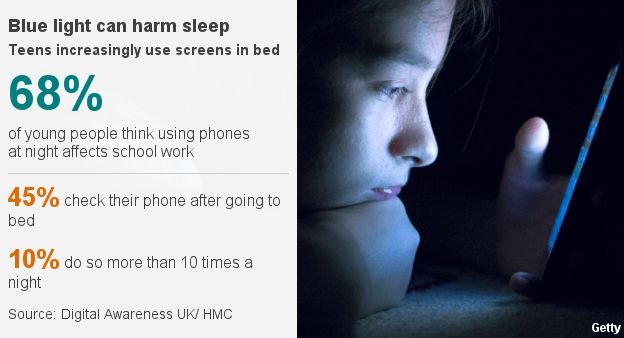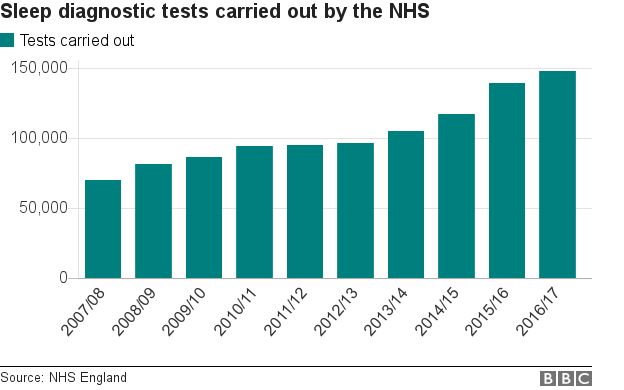10 things to know about sleep as the clocks go back
7. Phones are keeping teenagers awake
Sleep experts say teenagers need up to 10 hours sleep a night, but almost half don't get this much according to the NHS.
Bedrooms are supposed to be a place of rest but are increasingly filled with distractions like laptops and mobile phones, making it harder for young people to nod off.
We have more different types of entertainment on offer than ever, making the temptation to stay awake greater. The blue light emitted by electronic devices makes us feel less sleepy. And the activity itself - be it talking to friends or watching TV - stimulates our brain when it should be winding down.

Digital Awareness UK and the Headmasters and Headmistresses Conference recommend a nightly "digital detox", putting mobile devices away for 90 minutes before lights out.
Last year the two organisations commissioned a poll which found a high proportion of young people check their phones after going to bed.
8. Testing for sleep disorders is on the up
More people are turning up at their doctors complaining of problems sleeping.
Analysing data collected by NHS England, found in June that the number of sleeping disorder tests had increased every year over the past decade.
There are a number of factors, but the biggest is probably the rise in obesity, according to Dr Guy Leschziner, a consultant neurologist at Guy's and St Thomas' Hospital's Sleep Disorders Centre.

The most common and fastest-growing complaint he sees is obstructive sleep apnoea - where the airway collapses and people stop breathing in their sleep - and this is strongly related to weight.
The media has also played a role because people are more likely to go to their GPs having read an article or searched for their symptoms online, he says.
The recommended treatment for insomnia is cognitive behavioural therapy, and doctors are increasingly aware that they shouldn't be prescribing sleeping pills. But many still do because it's difficult to access non-drug based treatments, particularly outside big cities.
...[ Continue to next page ]
Share This Post





